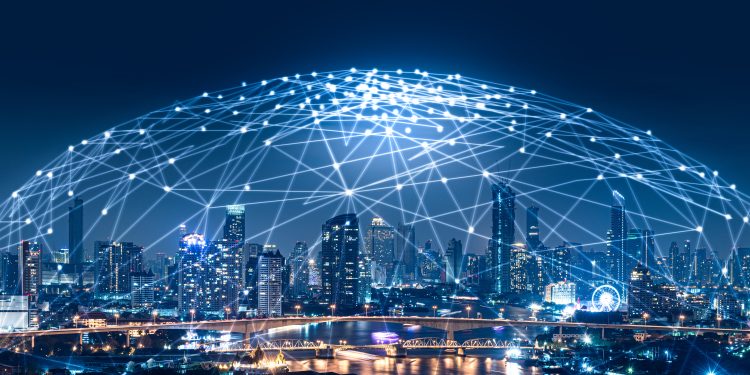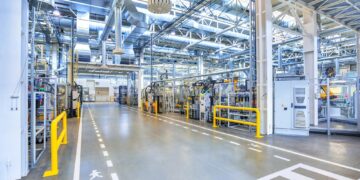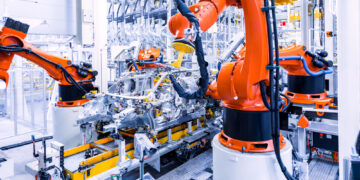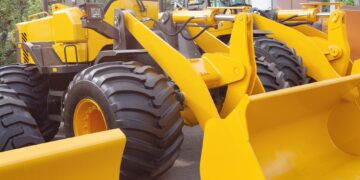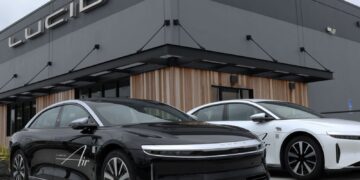The ambitious endeavor known as The Line, forming a significant part of Saudi Arabia’s NEOM project, is a groundbreaking initiative in urban development. Introduced in 2021 by Crown Prince Mohammed bin Salman, this linear city is poised to transform modern living by prioritizing the health of its inhabitants and the environment, moving away from conventional city sprawl and inefficient infrastructure.
As an innovative response to the rapid urbanization challenges, The Line envisages a harmonious coexistence with nature, free from vehicles, streets, and carbon emissions, while integrating state-of-the-art technology and logistics.
The design philosophy of The Line is as bold as it is forward-thinking. By discarding the traditional urban grid in favor of a linear layout, The Line significantly lowers its environmental impact. This city is designed vertically with residential and business zones in a compact strip, placing all necessities within a mere five-minute walk, thus enhancing convenience and reducing travel-related emissions.
Central to The Line’s vision is the well-being of its residents, prioritized over traditional city infrastructure needs. This approach promises to improve life quality by slashing intra-city travel times and ensuring easy access to facilities.
In stark contrast to many contemporary developments that impinge upon their environments, The Line aims to conserve 95% of its natural setting. Its design intends to merge with the surroundings, featuring a reflective facade that diminishes its visual footprint. The Line will operate exclusively on renewable energy, adhering to stringent environmental goals. Its city operations, including water and energy management, are crafted to be ecologically benign. Moreover, the high-speed rail system, capable of traversing the city in just 20 minutes, epitomizes the commitment to sustainable transit.
The Line is envisioned as a hub for technological innovation. From construction methods that will leverage digital and industrial technologies to AI and automation that will steer its daily operations, the city is poised to be a laboratory for future technologies that could redefine urban evolution.
A key innovation in The Line’s operations is its embrace of a logistics ecosystem powered by autonomous vehicles and IoT. This system will manage all aspects of delivery and transportation, from routine supplies to emergency responses, with minimal human input. The infrastructure supports autonomous transportation, ensuring efficient, reliable service with reduced error rates.
Perhaps one of the most inventive features of The Line is its underground transportation networks, which include a high-speed rail system named The Spine. This system, along with other subterranean channels, will facilitate goods transport and waste management, optimizing space use, reducing surface traffic, and improving the aesthetic and environmental quality of the city’s living areas.
AI technology is integral to the logistics of The Line. From predictive analytics that anticipate supply needs to autonomous systems managing inventory and logistics, AI enables a highly responsive and adaptable logistics system, capable of real-time needs fulfillment, waste reduction, and unprecedented efficiency in resource distribution.
The Line faces formidable challenges in its implementation. It pushes the envelope of contemporary urban planning and construction methods, aspiring to become a fully automated, carbon-neutral city erected in a largely undeveloped region, which demands advanced technology and innovation in all development facets. Additionally, the project’s location in an extreme climate and its remote setting add complexity to construction and logistics.
Despite recent announcements of scaling down, the financial magnitude of The Line remains immense. Attracting adequate international investment is challenging, and the project’s considerable costs are primarily covered by Saudi Arabia’s Public Investment Fund, making the project’s financial stability susceptible to the volatile global oil market.
Regulatory issues are also pivotal, as The Line’s unique urban living concept may necessitate new urban governance and legal frameworks. Ensuring safety in a highly automated environment is critical. Moreover, regulatory frameworks must evolve continually to keep pace with technological advances and various implementation phases, adhering to international standards for safety and sustainability.
As a trailblazer in urban development, The Line integrates advanced sustainability and smart city technologies, setting a new benchmark for urban living standards. Its vertical, linear structure fosters minimal ecological impact and promotes engagement with nature. While The Line’s design principles offer a novel blueprint for urban spaces worldwide, its replicability might be constrained by Saudi Arabia’s distinct geographical and financial context.
Saudi Arabia’s promotion of The Line as a global frontrunner in urban innovation is part of the larger NEOM initiative, which seeks to become a nexus of innovation across various sectors. The Line’s integration of progressive technologies such as AI, IoT, and renewable energy could serve as a proving ground for urban technology applications in real-world contexts. The insights and technologies honed here could have a broad global impact, elevating Saudi Arabia’s stature as a pioneer in futuristic urban solutions.
By re-envisioning urban existence to align with natural elements while harnessing advanced technology and sustainable practices, The Line strives to pioneer a precedent for global urban development. Its unique linear, vehicular-free, and vertically oriented layout aims at fostering a healthier, more eco-friendly lifestyle that could spur inspiration for future city projects around the world.
